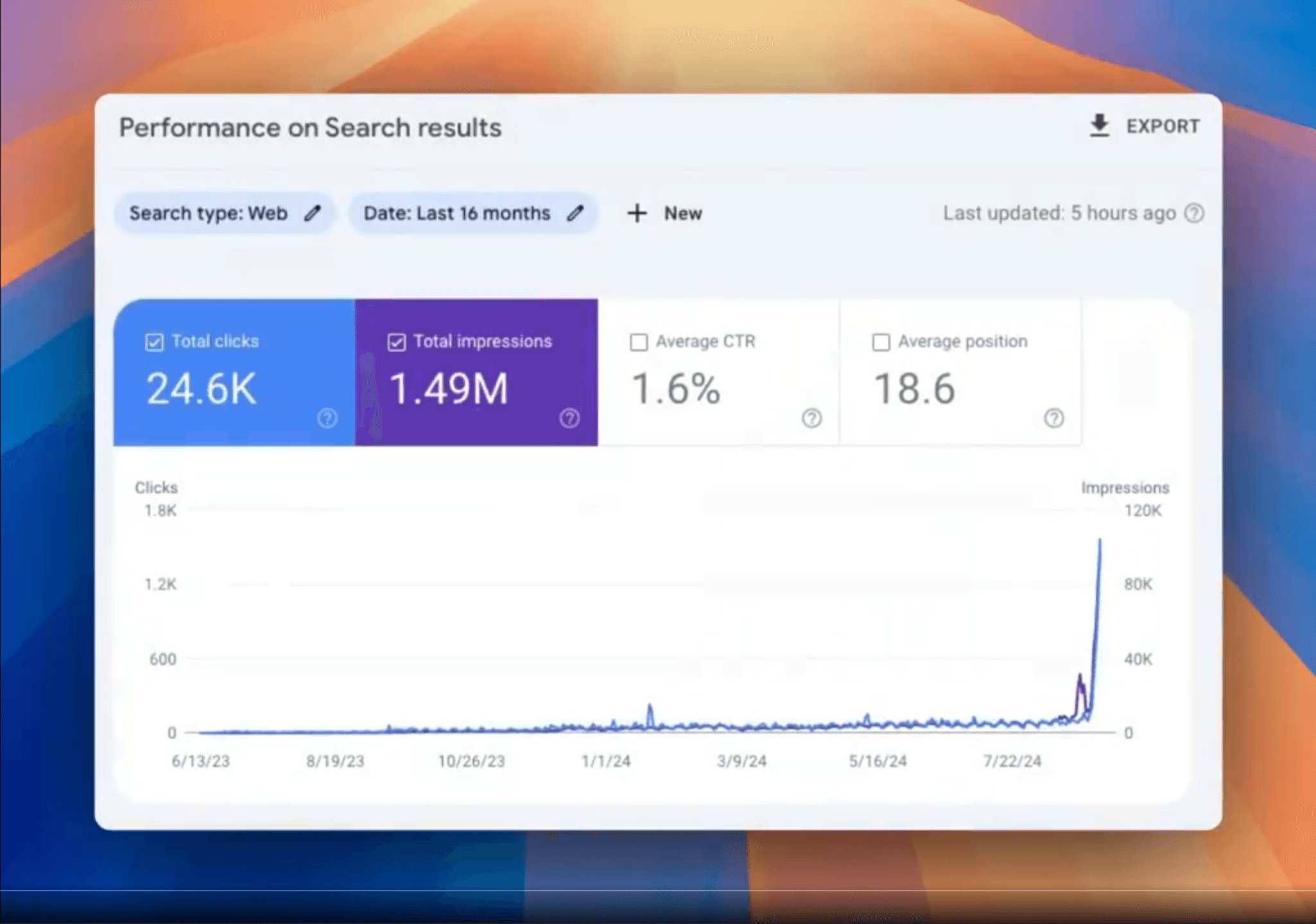Why is Professional Development Important for Your Business?


Pro Development Importance
Sep 7, 2024
Professional development is essential for businesses aiming to thrive in the ever-evolving market. By investing in the growth of employees, companies can enhance their overall productivity and create a more engaged workforce.
Understanding Professional Development
Professional development encompasses a variety of learning opportunities that help employees enhance their skills and knowledge related to their jobs. This includes workshops, conferences, online courses, coaching, and even mentorship programs. By participating in these activities, employees not only grow individually but also contribute to a collaborative culture within the workplace.
Moreover, it’s vital to recognize that professional development is not limited to formal education or training. Informal learning through peer interactions and experiences can also be incredibly valuable. Thus, organizations should foster an environment that encourages knowledge sharing and open discussions among team members.
Understanding professional development means acknowledging its evolving nature. As industries pivot and adapt to technological advancements and market shifts, so too should the skills of the workforce. Continuous learning ensures that employees are equipped to handle changes, remain competitive, and sustain the organization's success.
Benefits of Professional Development for Employees
One of the most significant benefits of professional development for employees is an increase in job satisfaction. When employees see that their employer is invested in their growth, it fosters a sense of loyalty and commitment. They are likely to feel more valued and appreciated, which can lead to enhanced motivation and productivity.
In addition to job satisfaction, professional development leads to enhanced skill sets. Employees gain new competencies and sharpen existing skills, making them more effective in their roles. This not only positions them for potential promotions and career advancements but also aids in personal growth, broadening their horizons and improving their marketability.
Furthermore, engaging in ongoing professional development can significantly boost an employee’s confidence. As they acquire new knowledge and skills, they are likely to feel more empowered to tackle challenges and contribute innovative ideas. This improved confidence can spiral into a positive cycle, motivating them to seek out even more opportunities for learning.
How Professional Development Impacts Business Growth
The benefits of professional development extend beyond individual employees and play a substantial role in business growth. Companies that prioritize the development of their employees often experience increased overall productivity. Improved skills mean tasks are executed more efficiently, and this operational effectiveness can significantly enhance the bottom line.
Moreover, businesses that cultivate a culture of learning attract top talent. When prospective employees see a strong commitment to professional development, they are more likely to choose a company that prioritizes their growth. This competitive advantage becomes crucial in sectors where skilled professionals are in high demand.
Ultimately, the impact of professional development can lead to a more innovative workplace. With continuous learning opportunities, employees are encouraged to think creatively and approach problem-solving from various angles. This innovation is essential for businesses looking to stay ahead in their industries and adapt to changing consumer needs.
Implementing Professional Development Programs
To effectively implement professional development programs, it’s essential to start by assessing the needs of your employees. Conduct surveys or hold discussions to understand their interests and career aspirations. This data can help tailor programs that resonate with your workforce and maximize participation.
Additionally, consider incorporating different formats for learning to accommodate various learning styles. Some employees may thrive in traditional classroom settings, while others may learn better through hands-on experiences or online courses. A diverse approach to professional development can enhance engagement and effectiveness.
Lastly, ensure that leadership is supportive of professional development initiatives. When leaders are involved—whether by attending workshops or sharing their own learning experiences—it sets a positive example for employees. A culture that values continuous learning starts at the top and can profoundly influence a company's overall commitment to professional development.
Final Thoughts on Professional Development
In conclusion, professional development is not just a perk; it’s a necessity for any business looking to achieve sustained success. By focusing on the growth of your employees, you’re investing in the future of your company.




Pro Development Importance
Sep 7, 2024
Professional development is essential for businesses aiming to thrive in the ever-evolving market. By investing in the growth of employees, companies can enhance their overall productivity and create a more engaged workforce.
Understanding Professional Development
Professional development encompasses a variety of learning opportunities that help employees enhance their skills and knowledge related to their jobs. This includes workshops, conferences, online courses, coaching, and even mentorship programs. By participating in these activities, employees not only grow individually but also contribute to a collaborative culture within the workplace.
Moreover, it’s vital to recognize that professional development is not limited to formal education or training. Informal learning through peer interactions and experiences can also be incredibly valuable. Thus, organizations should foster an environment that encourages knowledge sharing and open discussions among team members.
Understanding professional development means acknowledging its evolving nature. As industries pivot and adapt to technological advancements and market shifts, so too should the skills of the workforce. Continuous learning ensures that employees are equipped to handle changes, remain competitive, and sustain the organization's success.
Benefits of Professional Development for Employees
One of the most significant benefits of professional development for employees is an increase in job satisfaction. When employees see that their employer is invested in their growth, it fosters a sense of loyalty and commitment. They are likely to feel more valued and appreciated, which can lead to enhanced motivation and productivity.
In addition to job satisfaction, professional development leads to enhanced skill sets. Employees gain new competencies and sharpen existing skills, making them more effective in their roles. This not only positions them for potential promotions and career advancements but also aids in personal growth, broadening their horizons and improving their marketability.
Furthermore, engaging in ongoing professional development can significantly boost an employee’s confidence. As they acquire new knowledge and skills, they are likely to feel more empowered to tackle challenges and contribute innovative ideas. This improved confidence can spiral into a positive cycle, motivating them to seek out even more opportunities for learning.
How Professional Development Impacts Business Growth
The benefits of professional development extend beyond individual employees and play a substantial role in business growth. Companies that prioritize the development of their employees often experience increased overall productivity. Improved skills mean tasks are executed more efficiently, and this operational effectiveness can significantly enhance the bottom line.
Moreover, businesses that cultivate a culture of learning attract top talent. When prospective employees see a strong commitment to professional development, they are more likely to choose a company that prioritizes their growth. This competitive advantage becomes crucial in sectors where skilled professionals are in high demand.
Ultimately, the impact of professional development can lead to a more innovative workplace. With continuous learning opportunities, employees are encouraged to think creatively and approach problem-solving from various angles. This innovation is essential for businesses looking to stay ahead in their industries and adapt to changing consumer needs.
Implementing Professional Development Programs
To effectively implement professional development programs, it’s essential to start by assessing the needs of your employees. Conduct surveys or hold discussions to understand their interests and career aspirations. This data can help tailor programs that resonate with your workforce and maximize participation.
Additionally, consider incorporating different formats for learning to accommodate various learning styles. Some employees may thrive in traditional classroom settings, while others may learn better through hands-on experiences or online courses. A diverse approach to professional development can enhance engagement and effectiveness.
Lastly, ensure that leadership is supportive of professional development initiatives. When leaders are involved—whether by attending workshops or sharing their own learning experiences—it sets a positive example for employees. A culture that values continuous learning starts at the top and can profoundly influence a company's overall commitment to professional development.
Final Thoughts on Professional Development
In conclusion, professional development is not just a perk; it’s a necessity for any business looking to achieve sustained success. By focusing on the growth of your employees, you’re investing in the future of your company.
View More



Pro Development Importance
Sep 7, 2024
Professional development is essential for businesses aiming to thrive in the ever-evolving market. By investing in the growth of employees, companies can enhance their overall productivity and create a more engaged workforce.
Understanding Professional Development
Professional development encompasses a variety of learning opportunities that help employees enhance their skills and knowledge related to their jobs. This includes workshops, conferences, online courses, coaching, and even mentorship programs. By participating in these activities, employees not only grow individually but also contribute to a collaborative culture within the workplace.
Moreover, it’s vital to recognize that professional development is not limited to formal education or training. Informal learning through peer interactions and experiences can also be incredibly valuable. Thus, organizations should foster an environment that encourages knowledge sharing and open discussions among team members.
Understanding professional development means acknowledging its evolving nature. As industries pivot and adapt to technological advancements and market shifts, so too should the skills of the workforce. Continuous learning ensures that employees are equipped to handle changes, remain competitive, and sustain the organization's success.
Benefits of Professional Development for Employees
One of the most significant benefits of professional development for employees is an increase in job satisfaction. When employees see that their employer is invested in their growth, it fosters a sense of loyalty and commitment. They are likely to feel more valued and appreciated, which can lead to enhanced motivation and productivity.
In addition to job satisfaction, professional development leads to enhanced skill sets. Employees gain new competencies and sharpen existing skills, making them more effective in their roles. This not only positions them for potential promotions and career advancements but also aids in personal growth, broadening their horizons and improving their marketability.
Furthermore, engaging in ongoing professional development can significantly boost an employee’s confidence. As they acquire new knowledge and skills, they are likely to feel more empowered to tackle challenges and contribute innovative ideas. This improved confidence can spiral into a positive cycle, motivating them to seek out even more opportunities for learning.
How Professional Development Impacts Business Growth
The benefits of professional development extend beyond individual employees and play a substantial role in business growth. Companies that prioritize the development of their employees often experience increased overall productivity. Improved skills mean tasks are executed more efficiently, and this operational effectiveness can significantly enhance the bottom line.
Moreover, businesses that cultivate a culture of learning attract top talent. When prospective employees see a strong commitment to professional development, they are more likely to choose a company that prioritizes their growth. This competitive advantage becomes crucial in sectors where skilled professionals are in high demand.
Ultimately, the impact of professional development can lead to a more innovative workplace. With continuous learning opportunities, employees are encouraged to think creatively and approach problem-solving from various angles. This innovation is essential for businesses looking to stay ahead in their industries and adapt to changing consumer needs.
Implementing Professional Development Programs
To effectively implement professional development programs, it’s essential to start by assessing the needs of your employees. Conduct surveys or hold discussions to understand their interests and career aspirations. This data can help tailor programs that resonate with your workforce and maximize participation.
Additionally, consider incorporating different formats for learning to accommodate various learning styles. Some employees may thrive in traditional classroom settings, while others may learn better through hands-on experiences or online courses. A diverse approach to professional development can enhance engagement and effectiveness.
Lastly, ensure that leadership is supportive of professional development initiatives. When leaders are involved—whether by attending workshops or sharing their own learning experiences—it sets a positive example for employees. A culture that values continuous learning starts at the top and can profoundly influence a company's overall commitment to professional development.
Final Thoughts on Professional Development
In conclusion, professional development is not just a perk; it’s a necessity for any business looking to achieve sustained success. By focusing on the growth of your employees, you’re investing in the future of your company.




